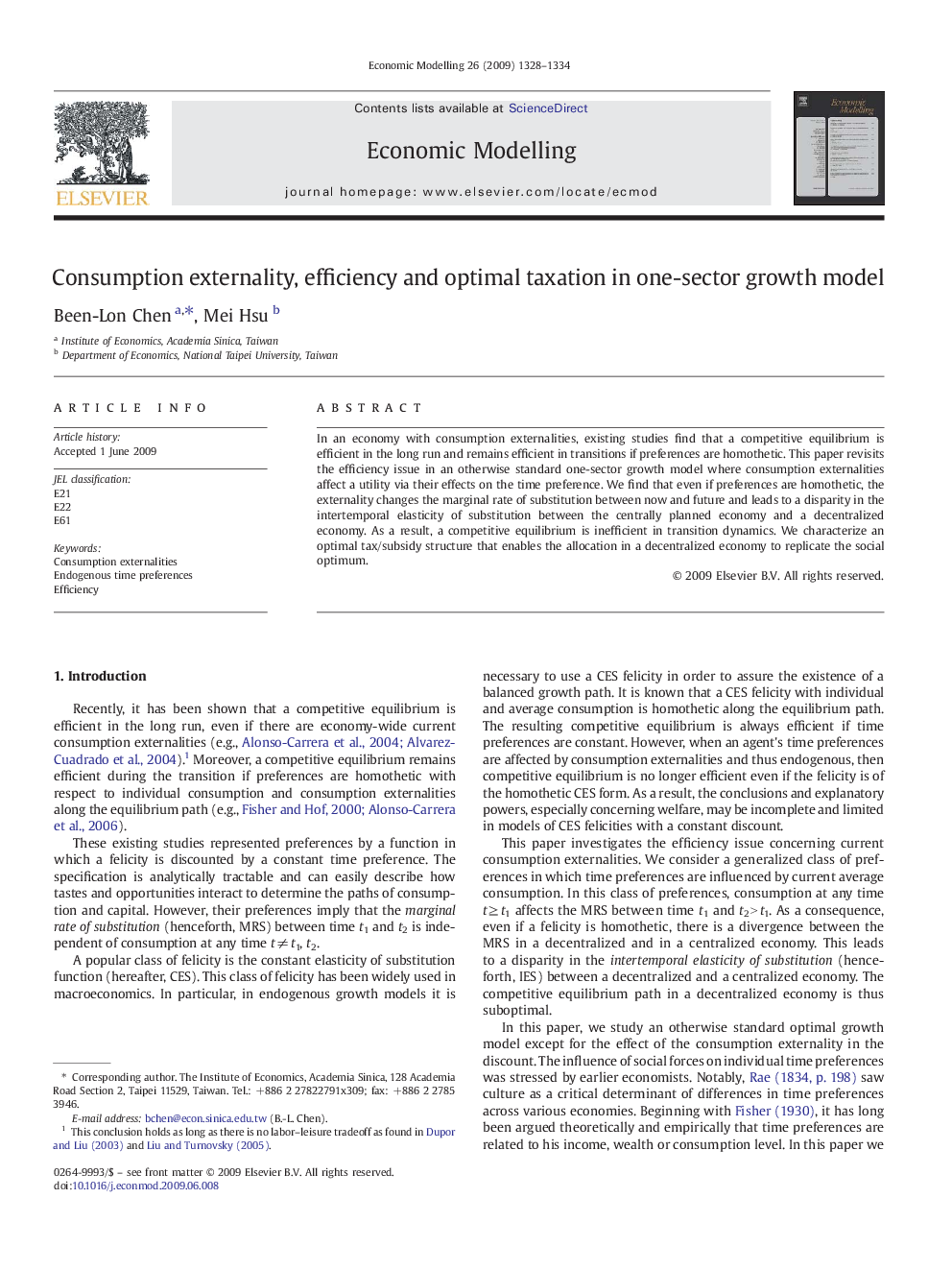| Article ID | Journal | Published Year | Pages | File Type |
|---|---|---|---|---|
| 5055592 | Economic Modelling | 2009 | 7 Pages |
In an economy with consumption externalities, existing studies find that a competitive equilibrium is efficient in the long run and remains efficient in transitions if preferences are homothetic. This paper revisits the efficiency issue in an otherwise standard one-sector growth model where consumption externalities affect a utility via their effects on the time preference. We find that even if preferences are homothetic, the externality changes the marginal rate of substitution between now and future and leads to a disparity in the intertemporal elasticity of substitution between the centrally planned economy and a decentralized economy. As a result, a competitive equilibrium is inefficient in transition dynamics. We characterize an optimal tax/subsidy structure that enables the allocation in a decentralized economy to replicate the social optimum.
